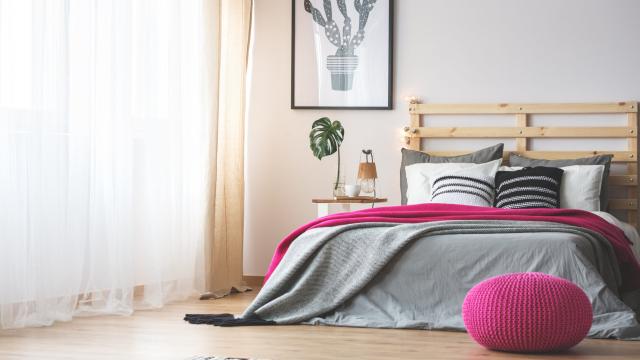Staying home is always a good way to stay safe during a pandemic, but what about somebody else’s home? Renting an Airbnb is relatively low-risk, if you follow a few precautions.
Avoid people
The biggest risk factor for contracting the coronavirus is close contact with other people. I asked emergency physician Jose Torradas (who recently spoke with us about how to keep a COVID-19 patient from infecting others in their home) and he advised against roomshares in which you’re staying in the same house or apartment as the host. So look for a listing where you have the whole place to yourself.
It’s probably impossible to travel without coming into contact with anyone ” even on a solo road trip you’ll have to stop for gas and groceries. But if you do travel, make sure you’re distancing as best you can. For example, check the host’s procedures to make sure you can pick up the key without having to meet them in person.
Bring your own cleaning supplies
We still don’t know exactly how long the coronavirus can remain infectious on household surfaces, but the good news is that surface transmission is probably not very common. The more time has passed since the last person was in the room, the less likely anything infectious remains. Still, it’s a good idea to keep rooms clean, just to be safe.
AirBnB asks their hosts to clean thoroughly between guests. You can read their recommended cleaning procedure here. But there’s no way to know if the procedure has been followed, unless cleaning has been so lax that previous guests commented on it in their reviews.
Both Torradas and our travel writer, Imani Bashir, suggest bringing your own cleaning supplies to be safe. It’s up to you whether you want to mop the floors and do the laundry, or just take a disinfectant wipe to high-touch surfaces like doorknobs and countertops.
At a minimum, you’ll probably want gloves, a disinfectant spray that is approved for use against the coronavirus, and paper towels.
What to do when you check in
Here are a few steps that should reduce your chances of encountering infectious droplets in your home-away-from-home. Remember, these lower an already low risk, but they’re not a guarantee of safety.
- Ventilate the space as much as possible. Open the windows and doors. Turn on a fan.
- Put on your gloves, if you have them.
- If you’re going to wash linens, or do other chores like taking out garbage or washing dishes (hopefully not necessary in a clean house), do those next. Wash anything that is visibly dirty before you begin disinfecting.
- Disinfect high-touch surfaces with a disinfectant spray or with a bleach solution. Follow the directions on the package, which may require that you allow the surface to remain wet for a certain amount of time.
- Wash your hands when you’re done.
For more on how to clean and disinfect, check out the Department of Health’s cleaning page. For the rest of your stay, remember all the other ways to stay safe, like ordering takeout rather than dining in, and avoiding places (like elevators) where you can’t keep your distance from other people.

Comments